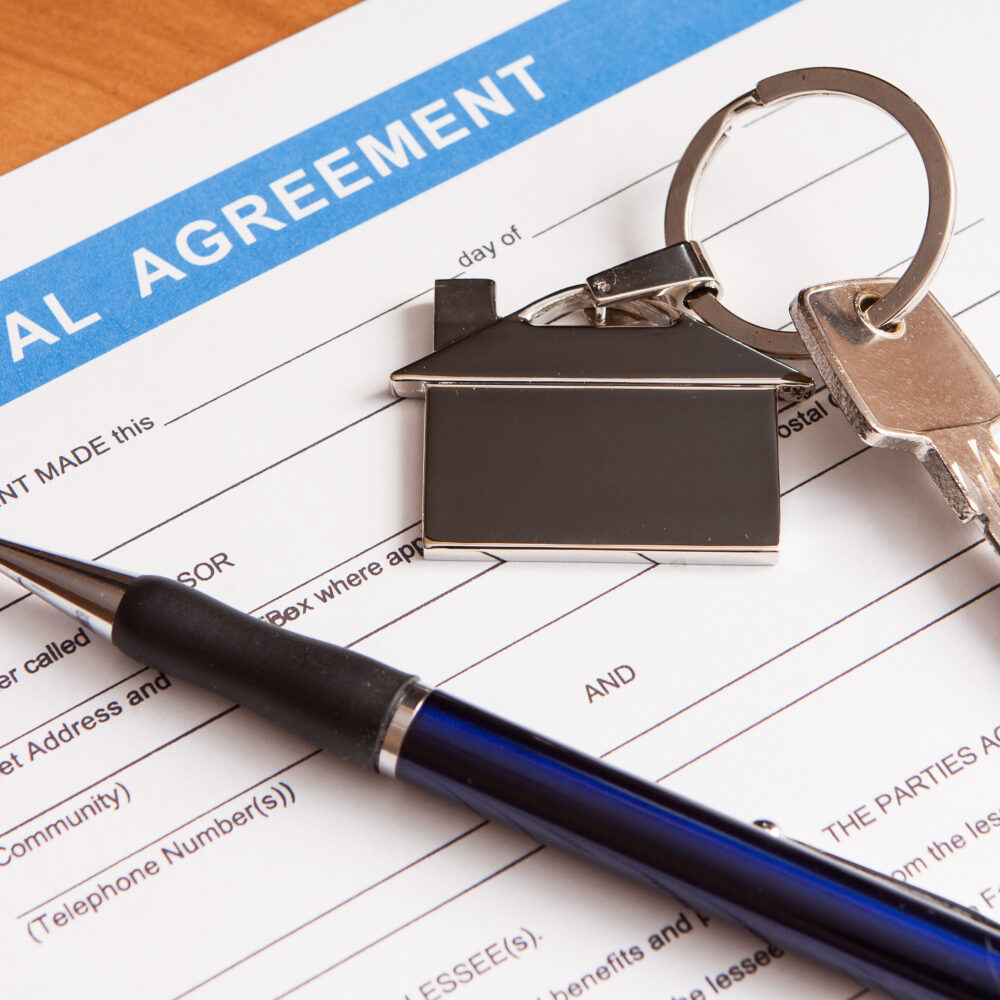Summer is just a few months away, and with many landlords opting for leases that renew in the summer, it may be time to review your tenant’s rental agreement!
A lease or rental agreement sets out the rules landlords and tenants agree to follow in their rental relationship. It needs to detail the terms and conditions of your tenant’s use of the unit, including pet and smoking policies, as well as practical details such as how long the tenant can occupy the property and the amount of rent due each month. It is a legal contract that needs to cover the basic terms of the tenancy, and is the first step toward protecting both you and your investment property.
It is important to review your lease or rental agreement on an annual basis to make sure it is compliant with all relevant laws, including rent control ordinances, health and safety codes, occupancy rules, and antidiscrimination laws. A good time for a landlord to review a lease is at least 60 to 90 days before it expires, giving yourself enough time to review the terms and propose changes. Starting early means you will have the time to get something signed, or notify the tenant if they will need to move out, before the current lease expires or comes up for renewal.
There are many important elements to review as your tenant’s lease term comes to an end. We’ve compiled the top five elements of your rental agreement that should be reviewed at least annually:
1. Tenant Names
Tenants often change at the end of a lease term. One tenant may stay while another may be replaced by a new tenant. Review your rental agreement annually to make sure that every adult (persons aged 18 and older) who lives in the rental unit, including both members of a married or unmarried couple, are named as tenants and sign the lease or rental agreement. This makes each tenant legally responsible for all lease terms, including the full amount of the rent and the proper use of the property. This means that you can legally seek the entire rent from any one of the tenants should the others skip out or be unable to pay; and if one tenant violates an important term of the agreement, you can terminate the tenancy for all tenants on that lease or rental agreement.
2. Lease Term
In most states, if the landlord accepts rent from a tenant after the original lease expires, the lease becomes a month-to-month lease. The same terms of the old lease still apply, but the length and notice requirements can change. For example, the tenant might have to let the landlord know they are moving out only 30 days ahead of time instead of 90 days ahead. In a few states, if a landlord accepts rent after a lease expires, it automatically renews under the same terms and length of time as the original lease. You should be aware of the regulations for your state and plan your lease renewals accordingly. Sometimes, a month-to-month lease is preferable for tenants and landlords, but it could also leave landlords with an unexpected vacancy at an inopportune time. For this reason, many landlords shy away from month-to-month lease and opt for fixed lease terms that end in the summer, which is the most desirable time to have a vacant property available to rent, as this is peak season for rental properties.

3. Cost of Rent
Review the amount of rent you are asking every year to make sure you are receiving fair market rent. Both Oregon and Washington are experiencing record high rents currently, which means it might be time to increase rent if you haven’t done so in a few years. While no tenant likes to receive them, rent increases are important to keep up with inflation and costs of living for landlords. With limited availability of rental properties (especially single-family homes), it is more important than ever to make sure that your rental property is receiving fair market rent each month. However, you must tread carefully, due to legal changes in the last year. Landlords can increase the rent in Washington (aside from Seattle) with a 60-day notice for tenants. Oregon is different and requires a 90-day notice with no more than 9.2% increase. In the City of Portland, you must be even more careful, as even rent increases of 1% may trigger relocation fees for landlords, which can be incredibly costly.
4. Lease Restrictions
As your lease term ends, you may want to review the lease for restrictions and decide if you want to make changes. For example, you may previously have been a pet-free property but have decided to allow cats for your tenants. A change like this would require an amendment or alteration of the lease agreement, in addition to possible additional security or pet deposits that should be explicitly stated in the lease agreement as well.
5. Tenant and Landlord Responsibilities
You should also review tenant and landlord responsibilities each year. For the landlord these may include lawn care, repairs and maintenance, and any specific utilities for the landlord. Tenants are generally responsible for noise control, cleanliness, and tenant-specific utilities. Perhaps you want include utilities in your lease agreement in exchange for higher rent. Or maybe your tenant has agreed to handle lawn care and other responsibilities in exchange for reduced rent. Lease renewal is the time to evaluate these responsibilities and make the necessary changes in your lease agreement.
The requirements for lease and rental agreements vary from state to state, so make sure to review local regulations for your property before you begin.
Once you have reviewed your rental agreement, updating a lease is usually simple. You might choose to sign a whole new lease or only sign a lease amendment. The second option is more common because it does not require you to throw out the original lease. Instead, it is more like adding a new section to the lease. If you make any changes to the rules of the rental agreement, both you and the tenant need to sign and date it. Landlords are required to provide a copy of the rental agreement to the tenant(s) once it is signed.
Oregon and Washington are two of the most tenant-friendly states in the country. Creating and maintaining leases and navigating the ever-changing landlord tenant laws, in addition to your day-to-day landlord duties, can be confusing as well as costly, should something go wrong. Having a team of experts in your corner to help guide you in decision making can give you the relief you deserve to enjoy your life without the headache of keeping up with laws and tenants.
Ready to talk about what TMG Property Management Services NW can do for you?
Contact one of our experts today for a free consultation!
Contact Us Today to Receive a FREE Rental Analysis

Michelle Villarma
Multifamily - Oregon & Washington
Single Family - Tri-Cities

Tara Jackson
Single Family - SW Washington and Oregon

Karen Kroner
Single Family - Tri-Cities




